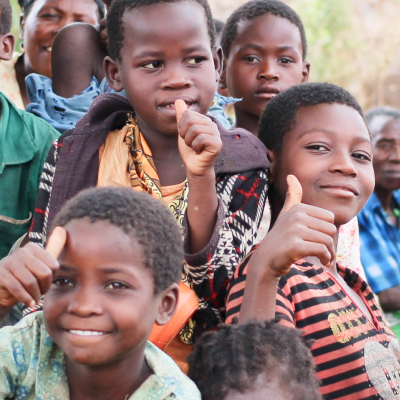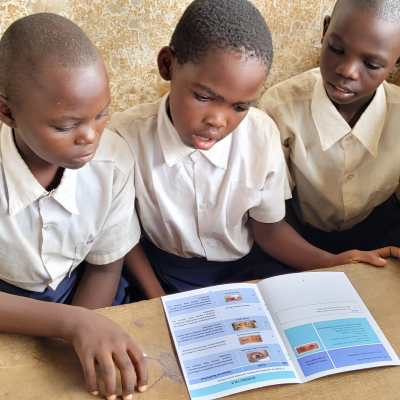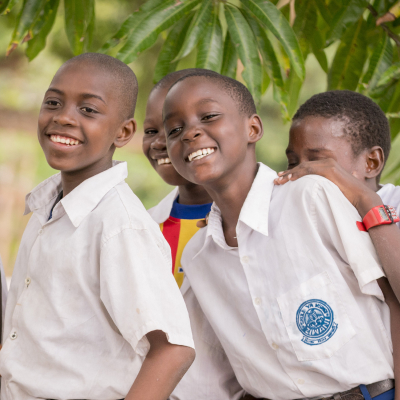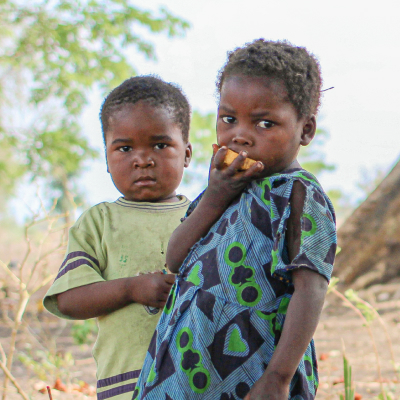"It is hard for me to walk, and I was so afraid that I might no longer be able to see. Thank you for giving me eyes so that I can see hope!"
The voice of Saidi, fifteen years old, was full of energy. Saidi lives in Ziwani, Mtwara, a Southern region in Tanzania. He was born with crooked legs. Evervday, he has to drag his legs and crawl with his arms to school. It takes Saidi over one hour everyday to go to school. One day, his eyes started to fill up with tears and itch. He was told he was infected with ‘trachoma’. Trachoma is an infectious disease that impacts the inner side of eyelids, a common disease in developing countries with poor sanitation. Tanzania, where Saidi lives in, is one of the countries with the highest prevalence rate of trachoma in the world.
Saidi was scared that he might go blind, but finally a gift of help arrived. It was the Heart to Heart Foundation that helps children receive eye surgery to treat trachoma. Although trachoma is treatable with a simple twenty minute surgery, it is nearly a miracle for people to afford the surgery in this region. Saidi could keep his vision and a his dream for the future as well. He also received a wheelchair as a gift so that he would no longer need to crawl on his hands. Ms. Eun-jeong Lee, Head of the Heart to Heart Foundation‘s Tanzania Branch Office, tells us that "Although trachoma is one of the most common causes of blindness throughout the world, it can be prevented and treated by washing hands and a simple surgery," and that "we must keep our interest so that we can help children like Saidi to keep their vision."
◇Blindness Can Be Prevented! A Heart-warming Gesture That Lightens Up the Dark
According to the WHO, there are as many as 285 million persons in the world that suffer visual impairment. Among them 90% of them live in developing countries. Especially, about half of children that go blind would lose their lives within two years after they lost their sight. Is there really nothing we can do to prevent blindness? Experts say that 8 out of 10 people‘s visual damage can be avoided and cured.
However, most of the people living in developing countries cannot afford access to ophthalmic treatment services. It is virtually ‘asking for the moon‘ for people here to get eye glasses and go to the hospital for treatment. Professor Paul Douglas Courtright, advisory member for the Foundation‘s Blindness Prevention Program explains that "it is because ophthalmic diseases have not been recognized as part of a public health issue," and that "developing countries do not have the necessary national policy, system or infrastructure for public eye health. People also are not well aware that eye disease can be avoided. Particularly, the situation of women and children is far more serious. Professor Courtright says that "since it is normally the female that bears most of the burden of household chores and livelihood, the blindness of women inevitably impacts the entire family.
Therefore, the WHO designates the second Thursday of every October as the "World Sight Day", and together with the IAPB, an body of the WHO has launched a global campaign. Launched in 2000, the campaign aims at eliminating avoidable and curable blindness. This year‘s slogan is ‘Eye Care For All‘. It aims to provide anyone with access to eye care service regardless of their gender, age, race, or economic status .
◇Worldwide Awareness-Raising Campaigns
The Heart to Heart Foundation, a member of the IAPB, also took part in the initiative to promote the ‘World Sight Day‘. As a matter of fact, the Heart to Heart Foundation has fully devoted itself to the single cause of providing ophthalmic services and infrastructure in developing countries up to the present. In 2009, the Foundation opened a eye care clinic in Gazipur, a northwest region of Dacca, the capital of Bangladesh. In 2011, the Foundation opened a MLOP(Mid-Level Ophthalmic Personnel) Training Center. Through such efforts the Foundation has contributed to fostering local MLOPs in Bangladesh, which lacks ophthalmic medical professionals. In the following years, the Foundation has broadened its‘ scope of contribution to launch the blindness prevention program in Cambodia and the anti-trachoma program in Tanzania. It opened a eye care clinic in the Philippines City Hospital, and started its service in Malawi in the previous year. As of August last year, the Heart to Heart Foundation has provided capacity building training to over 3500 ophthalmic professionals and medical professionals and has provided eye care service to over 120thousand local residents in developing countries.
Thanks to the development of such ophthalmic infrastructure, it became possible to implement various campaigns in Malawi, Cambodia, and Bangladesh and other 3 branches. In Malawi, the Foundation collaborated with the military government to launch an operating committee and seminars with local leaders, officials at the Educational Ministry and the Public Health Ministry. It also provided awareness raising brochures to prevent trachoma to local residents. In Cambodia, the Heart to Heart Foundation sent out radio messages such as "eye disease is avoidable", and "visit a nearby hospital if you have eye-disease symptoms". Hu-jeong Mun, Head of the Foundation‘s International Development & Cooperation Program stresses that “public eye health is a highly neglected area in the international development agenda”, and that "the government‘s role is to raise awareness to stress the need for public eye health policies and make policy suggestions. It is also important to provide policies for free eye check-up or educational brochures to encourage local residents to participate in the effort.
Nevertheless, not many people in Korea are aware of the "World Sight Day". In this regard, the Heart to Heart Foundation launched an online picket-holding campaign to raise awareness from October 1st to November 15th. Citizens can participate by taking their photos holding a picket with a message about eye health or blindness prevention, post it on their Facebook account, and post the URL on the Heart to Heart Foundation‘s ‘World Sight Day‘ Picket Event Bulletin. The participants in the campaign will receive a 2-hour Volunteer Certificate(limited to applicants in the 1365 Volunteer Portal).
Ms. Ju-hee Yun, Director of the Heart to Heart Foundation says that "I hope the World Sight Day Campaign helps people become more aware of people that are marginalized from public eye health, and to realize the preciousness of our vision that we tend to take for granted."





